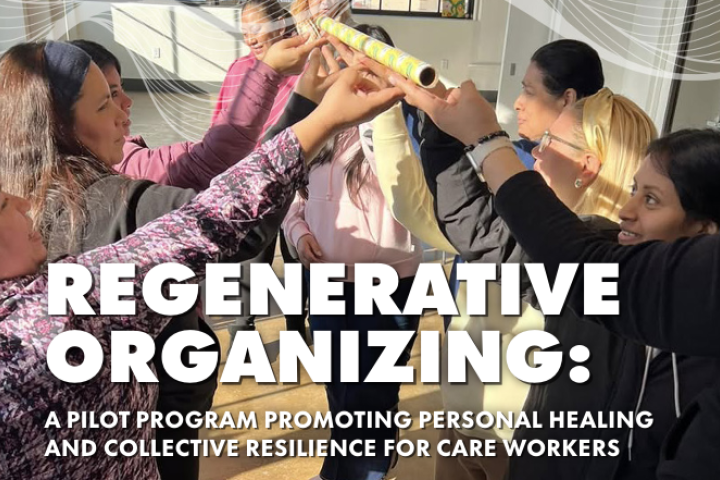
"State of the Labor Movement"
More than 60 Communications Workers of America (CWA) members in Ithaca this week for leadership training heard Bob Master discuss “The State of the Labor Movement and What We Can Do About It.”
Master is political director of CWA District 1 and co-chair of the New York Working Families Party.
Unionists from New York, New Jersey, Connecticut and Massachusetts were joined by Cornell faculty, students and other presenters at the university’s ILR School complex to hear the Tuesday talk, hosted by the union and the Worker Institute.
Master focused on gains unions and other social movements made throughout the 1960s and 1970s, and how corporate power has eroded those gains over the last 40 years.
“It is only mass mobilization that moves us forward,” said Master, citing the National Labor Relations Act and Medicaid as examples. Those gains were made possible because of an organized working class, he said.
Attendees of the leadership school, which began Sunday and continues through today, heard about corporate and government actions that have affected workers’ security in recent decades.
Deregulating the financial industry, cutting tax rates for the wealthiest Americans and weakening labor unions, Master said, form the cornerstone of a philosophy known by academics as “neoliberalism.”
Despite an unprecedented level of corporate political involvement, Master said he remains hopeful. “To be truly radical is to make hope possible rather than despair convincing,” he said, quoting writer Raymond Williams.
The talk ended with a call to action as Master noted recent victories of progressive groups around the country. In addition to the electoral successes of politicians like U.S. Sen. Elizabeth Warren, D-Mass., and Democratic mayoral candidate Bill de Blasio in New York City, Master referenced low-wage workers in fast food and other industries who are escalating efforts to secure living wages and fair job treatment.
While in Ithaca, CWA staff and members took part in a curriculum focused on building leadership capacity within the union’s locals.
Worker Institute Senior Associate Ken Margolies said that in addition to learning about resolving grievances and contract negotiations, unionists learned leadership skills to make their unions more inclusive and involve members in union activities.
“The Worker Institute is about preparing labor leaders to meet the challenges facing working people and their unions,” Margolies said. “That’s why we are proud to have a long history of conducting CWA’s annual leadership school.”
Debora M. Hayes, the union’s Northeast area director, said this week’s Cornell training helped participants “broaden understanding of their roles as leaders and think about what they should do at home as leaders.”
First-time participants attended sessions on innovative leadership strategies, labor history and grievance handling. Second-year students focused on details of contract negotiations and communicating within their unions and workplaces. Students were from a span of professions including telecommunications technicians, factory workers, nurses, and public employees.
Claude Didry, a visiting scholar from France who has been studying at the Worker Institute this month, attended several sessions and emphasized the need for unions in Europe and the United States to work together.
Didry said he was impressed by discussions about building unity from diversity and the need for political action, and by the Worker Institute’s leadership curriculum. “I discovered a very interactive way of teaching that involves everybody in common reflection.”



